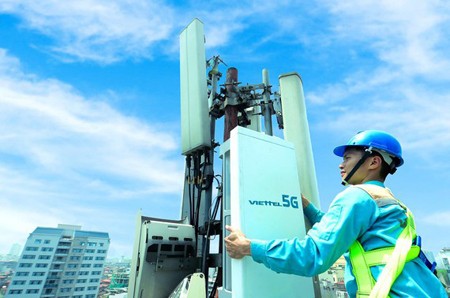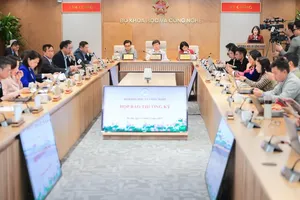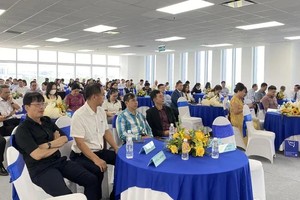
Compared to its 2G, 3G, or 4G counterparts, the 5G technology is much faster (10 times as much as the 4G), and it allows connections from more devices with a lower latency. This technology is expected to make breakthroughs in applications related to Internet of Things, smart city establishment, digital transformation.
In Vietnam, the Ministry of Information and Technology (MoIT) has just permitted Viettel and MobiFone to launch the commercial pilot of 5G technology until June 30 of 2021. Accordingly, the former carrier is allowed to pilot 5G services at no more than 140 locations in Hanoi. The latter will carry out this pilot in Ho Chi Minh City (HCMC) at up to a maximum of 50 Base Transceiver Stations (BTSs).
These piloting schemes are to evaluate the potential of the market and the stability of 5G equipment before the formal commercialization. Participants in these pilots are selected subscribers of Viettel and MobiFone with provided telecoms codes.
Besides the approval from MoIT, both piloting programs must strictly observe all regulations concerning standard management, telecoms quality, information security and cyber safety. Any telecoms resources used in these pilots must be returned after the permit expires or as requested by MoIT.
Before these commercial pilots, many Vietnamese mobile carriers like Viettel, MobiFone, VinaPhone have finished the technical test of the 5G technology from September 2019 to April 2020, making Vietnam one of the earliest countries to successfully pilot the 5G technology in the world.
Results show that along with the 10-time-faster speed, 5G’s latency is only one-fifth of 4G’s one.
At the moment, MobiFone is actively developing sufficient infrastructure to be ready for 5G service provision to its customers.
Looking at the dark side, since this is the first phase of the 5G introduction process in Vietnam, there are predicted difficulties such as high device and service cost, a selection limit of 5G-supported terminals, narrow network coverage.
In addition, due to Covid-19 pandemic, the piloting schemes in Vietnam could not be carried out as fully as wished, let alone the trouble in communication between regions and transport of necessary equipment.
These obstacles ask for a supporting policy from the Government and a considerable effort of all mobile carriers in Vietnam in issuing an affordable price after considering all related costs.
A specific ecosystem for this technology should also be established so that subscribers, when paying money for these 5G services, feel satisfied.
The representative of Viettel voiced the hope for a policy support from the Government, especially regarding suitable wavebands, so that mobile network providers can exploit this lucrative technology to the fullest.
As for Viettel, it is now conducting research and then experiment results in its own lab, followed by a careful analysis from experts in the field, before formally commercializing those results. This will hopefully reduce service prices while making its 5G network coverage wider.
























